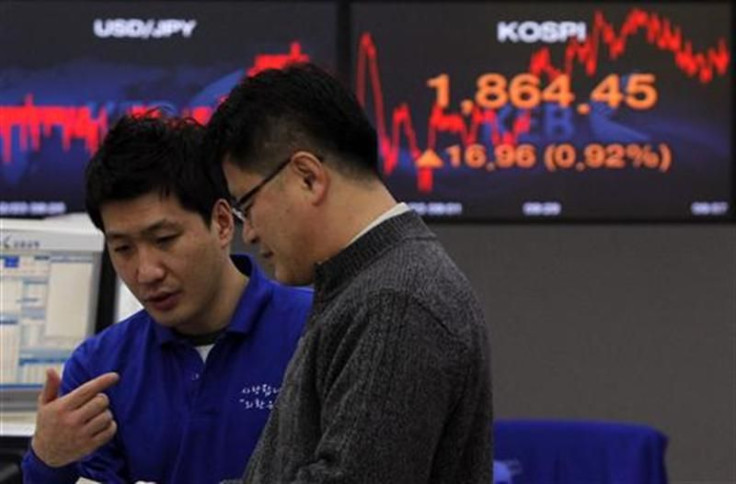South Korea's GDP Growth Slows Down To 0.4% In Q2

South Korea's economic growth slowed down to 0.4 percent in the second quarter compared to previous three months, weighed down by the faltering global economy and the intensifying debt crisis in the euro zone, data released by the Bank of Korea (BoK) Thursday showed.
In the first quarter, the economy expanded 0.9 percent. This report comes after it was known last month that the country's consumer confidence fell in June as compared to May. The BoK's consumer confidence index, which is an indication of consumers' overall economic outlook, dropped to 101 in June down from 105 in May.
Earlier this month, South Korea's central bank cut the interest rate for the first time in over three years in a move to stimulate the faltering economic growth of the country. The BoK said that it had decided to cut the interest rate by 25 basis points to 3 percent. This easing in the monetary policy was seen as a much-needed thrust to boost liquidity in the financial system and help the economy regain its growth momentum.
While cutting the interest rate, the central bank said that growth was likely to be weaker than it had expected, with a negative output gap persisting for longer. South Korea's economic growth forecast was reduced by the central bank to 3 percent this year, down from 3.5 percent prediction made in April.
There is a possibility that the BoK will have to further cut the growth forecast for the year if the situation in Europe worsens, subsequent to the re-emergence of debt problems in Spain. The Asian Development Bank (ADB) reported in April that the country's economic growth was expected to slow down as its exports were going to be badly impacted by the decreasing global demand.
With the euro zone expected to head into a deep recession in the second half of the year, conditions faced by South Korea's exporters are unlikely to improve soon. Exports to the EU have been falling and shipments to the U.S. and China have also been disappointing. The business sentiment too is not expected to be positive as a result of the debt crisis faced by the euro zone, which in turn will affect the job market.
© Copyright IBTimes 2025. All rights reserved.





















